How to Make Your Water Safe
Having safe drinking water is essential for everyone’s survival following a major disaster, but that’s usually one of the first things that go. Whether you’re dealing with a boil water notice, flooding, or even an earthquake, the clean tap water from your kitchen sink may have been compromised. Would you know how to provide your family members with their next glass of water?
Following a disaster, it’s extremely important that you make sure that your drinking water is safe to drink. Failing to do so could risk not only you but one of your family members from getting seriously sick. Listed below I have a handful of different methods that you can use to ensure that you have clean water to drink. Here’s more on how to make your water safe.
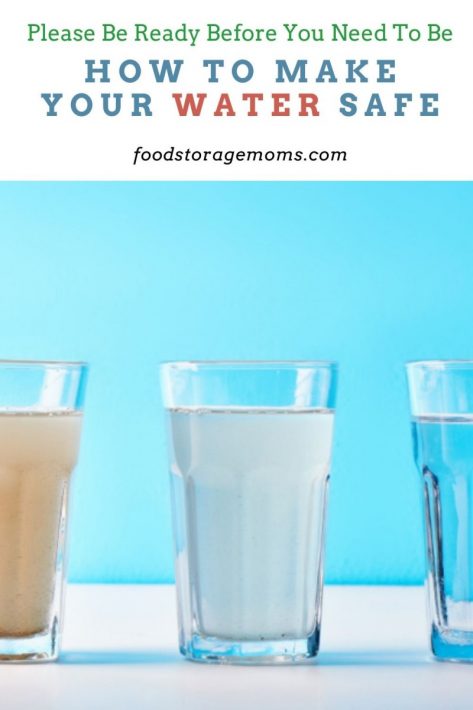
Boil Your Water
The boiling method is probably the best natural way that you can use to make sure that your tap water is safe to drink. It will ensure that all parasites, bacteria, and viruses have been killed in your drinking water. If you live in a big city, or a remote area, you may already be doing this with your water. However, before you boil it, see if your water is cloudy. If so, you will need to filter it through a clean cloth or a coffee filter in order to remove larger particles in the water. You may need to repeat this process more than one time. Please get a Butane Stove with Fuel to boil water if need be.
- Now it’s time to put your pot of water on the stove and bring it to a rolling boil.
- Allow the water to boil for a little over a minute, but if you live in a region that is above 5,000 feet in elevation, boil your water for at least 3 minutes.
- Allow it to cool and then move it to a different container that you can put a lid on.
- Before drinking, move the water from side to side.
- This will help improve the taste. You could also try and pour it into a different container that you could drink from, which would also help with the flavor.
- This is something you can do to make your water safe.
I quote the CDC on Boiling Water:
- “Bring the clear water to a rolling boil for 1 minute (at elevations above 6,500 feet, boil for three minutes).
- Let the boiled water cool.
- Store the boiled water in clean sanitized containers with tight covers.”
Use a Disinfectant: Household Bleach
There are times when boiling water is simply not an option. If this is your current situation, the next best thing that the CDC encourages you to do is to use household liquid bleach to purify your drinking water. This method should kill a vast majority of the parasites or bacteria that may be lurking in your water, but it may not kill 100% of them. Another thing that you need to think about is if your drinking water has been contaminated by a certain chemical, adding a disinfectant will not make your tap water safe for drinking purposes.
- When using household bleach to clean your water, make sure that you are using an unscented bleach that contains 4% to 6% chlorine.
- Also, if your drinking water happens to be cloudy, you will need to filter it in some fashion first.
- Using a coffee filter as many times as you need to is one solution.
- For every liter of water that you use, you will need to add 2 drops of unscented bleach (using an eyedropper) to it.
- When you’re working with a gallon of water, you will need to add 8 drops.
- Give it a good shake and allow it to sit for at least 30 to 45 minutes before you drink it.
Chlorine Tablets/Packs
If you’re worried about measurements or need a better option for remote living, you could always use chlorine tablets instead. In as little as 30 to 45 minutes, bacteria and viruses will have been killed and your drinking water will be good to go. You can easily carry these tablets anywhere and is definitely recommended if you’re visiting a location that has poor drinking water. You can get some from Walmart, Bleach Packs
Filtration
When it comes to water filters, keep in mind that each one is created differently. Pretty much all of them are capable of removing larger particles, but that’s where the line is drawn. Make sure that you invest in a high-quality one that also filters out viruses and doesn’t necessarily require disinfecting before filtering. The method of filtration will also help to make your drinking water more tolerable to drink after it’s been disinfected.
When you’re on the go, you will be needing a portable water filter that can be used on any water source. LifeStraw is amongst the best brands out there because it’s lightweight and durable, and especially due to how well it works. LifeStraw Filters
Buy a DIY Water Test Kit
If your area is under a boil water notice, you can still check your water to see if it applies to your home. There are water testing kits out there like this one, that determine if your drinking water has any one of the 12 contaminants that it screens for. If you would still like more information, here’s how to tell if your drinking water is contaminated.
You can consider checking into and using a WAPI. I quote Sun Oven WAPI, “A WAPI is a reusable transparent tube which contains wax. The wax melts and drops to the bottom of the tube when it reaches 150°F (65°C) for 6 minutes indicating that the water has been pasteurized and is now safe to drink.”
Stock Up on Cases of Water
If you’re still suspicious of whether your drinking water is safe or not, remove all doubt by opening up one of the cases of bottled water you have stockpiled for emergency situations. Out of all of these methods on this list, this is the safest option if you’re on the fence about whether you should trust your tap water or not. That’s why it’s so critical that you have a stockpile of drinking water already prepared for emergencies, that way your family will have water to drink and can focus on other matters.
Bottled Water: Is It Safe to Drink?
How To Store Water-Pros And Cons
How to Make Your Water Safe
Final Word
These days there are dozens of ways that you can make your drinking water safe. Iodine tablets, reverse osmosis, distilling your water, and even using a UV light purifier are other options you could try. Which of these methods do you plan on, or have used during an emergency situation? What tips would you add for how to make your water safe? May God Bless this world, Linda.
Copyright Images: Water Filters AdobeStock_240451828 by amixstudio

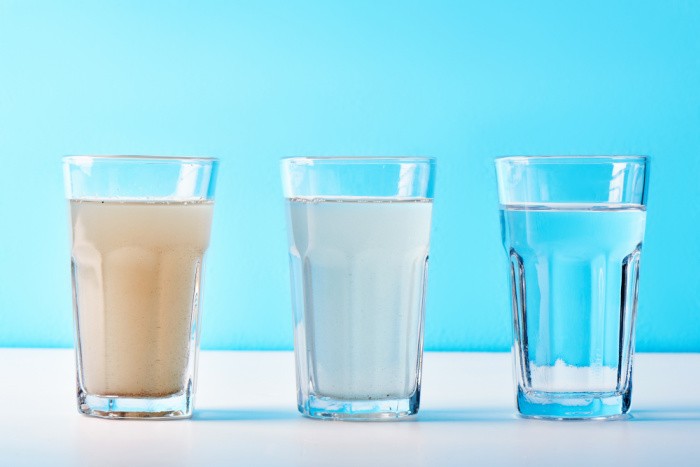

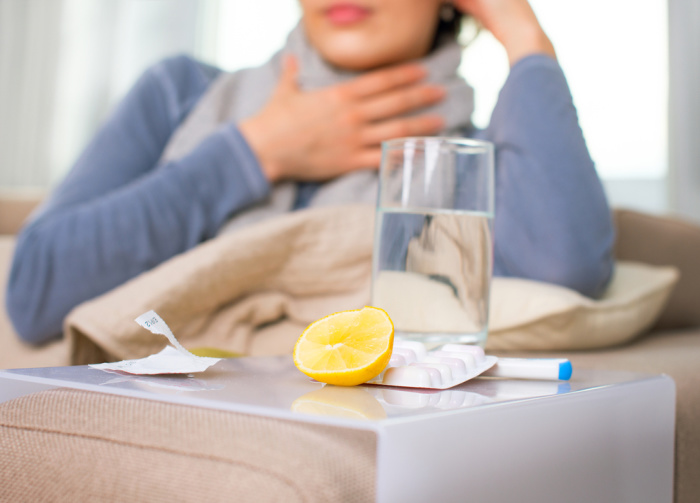
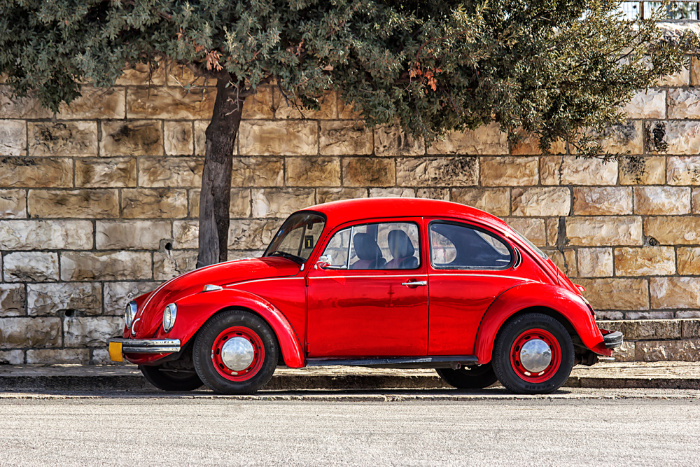
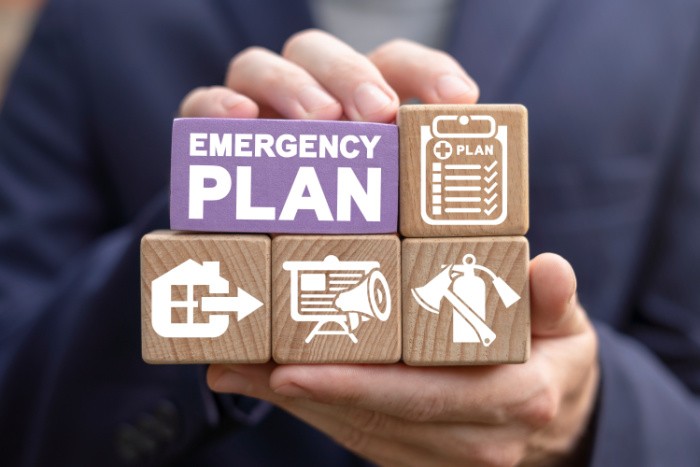
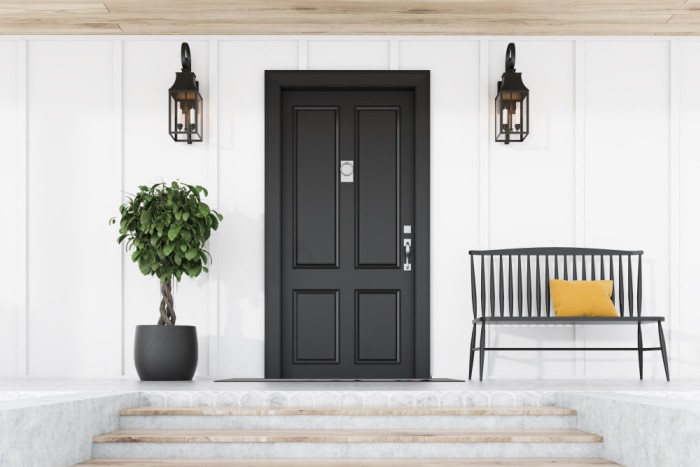
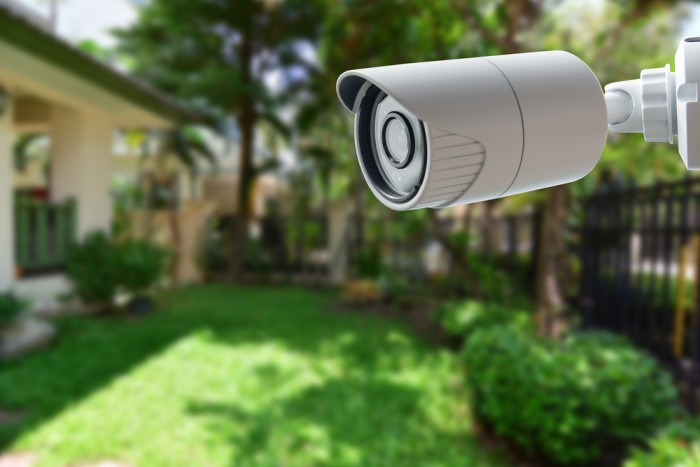
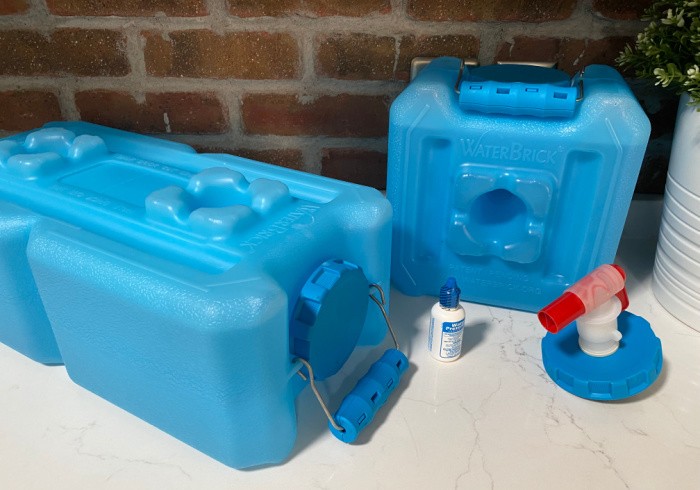













Rendering the water safe doesn’t mean it tastes good or is even totally clear. Make sure you try out your filters.
Propel packers, koolaid etc go a long ways.
If your using a charcoal based filter spit out or dump that first little bit.
Freezing temps are the enemy of filters too.
Hi Matt, I stock Tang for this very reason!! Plus, limeade and lemonade packets! Thanks for the tip on spitting out after a charcoal-based filter! Love it! Linda
I have never heard of chlorine tablets. Sounds like a great idea though. What do they look like and where do you buy them? Thanks.
Hi Harry, I got mine at Walmart: https://www.walmart.com/ip/Clorox-Zero-Splash-Bleach-Packs-12-Count/45461603. They are easier to store compared to liquid. Hopefully, they have some there where you live. Also, I ordered Mr. Buddy from that link you gave me! Thank you! I ordered the 12 foot hose and the filter as well. I’m so excited! Linda
Glad you are getting prepared for more cold weather. You might not need it until next winter although I think you may not be out of the cold weather yet. Yesterday, it was high 70s here and Monday we hit 85. High 60s right now heading to the high 70s again. Welcome to Texas weather. A couple weeks ago, we stayed below freezing for three days and got down as low as 6°F. The Buddy Heater will only warm a small room, but it is also a radiant heater, so if you sit in front of it, that makes a big difference as well.
As to the Clorox Bleach Packs, they are available at WalMart here as well as orderable for shipping. I will probably just order some with the next order I make from WalMart. Chinavirus has made me lazy. We get so much shipped to the house with free shipping from WalMart and Sam’s Club that I almost don’t need to go to the stores any more. LOL!!!
Have a great St. Patrick’s Day!!!
Hi Harry, oh my gosh, it’s St. Patrick’s Day!! Happy St. Patrick’s Day! It’s still too cold here to plant my seedlings, we keep getting snow, which is a rarity!! This year our weather has been crazy! Not like Texas, you guys got hit big time!! I order almost everything online as well. It’s free and I can just click a button and it arrives in a few days. I’m going to try and do a video with the Mr. Buddy heater. I’m hoping the heater heats a small room, that will work. Our house is pretty small. Linda
I thought you had to boil the water for 5 minutes. I just learned it was 3 minutes. Thank you for this information. We did have a boil water notice, but only found out 3 day after it went into effect. Luckily, we didn’t get sick.
I forgot to add that we have all kinds of kool aid packets, individual servings, as well as Drip Drops and I have some Tang as well. We also have the individual packets of Instant Folgers coffee. I also have some of the Mio drops.
Hi Deborah, I love having the Drip Drops, you never know when you will need them for a dehydrated person. I say whatever we can add to the water, get it!! I love this! Linda
On boiling water to make it safe to drink: I caution people to not over boil the water. As this post notes, you only have to boil for a bit over 1 minute or 3 minutes if over 5,000 ft elevation. The longer you boil water, the more concentrated the minerals become and that includes any heavy metals. All you have to do to see this (well you don’t actually “see” the heavy metals) is to boil water for some time, say 10 minutes, to see the concentrated minerals on the sides of the pan as the water evaporates. You do not want to concentrate the minerals. Also, in researching this further, it is important to NOT reboil water if at all possible as it further changes the water and results in more concentration of the minerals. I suppose, however, that in a SHTF situation, I would make the water safe to drink by boiling then when I am cooking something like boiled potatoes, soup, making rice or pasta, I would be reboiling the water. –Just some things to keep in mind.
Hi Leanne, great tip on do not over boil the water. I sure hope people stock a lot of water, it’s one of the most critical items we need. Great tips, Linda
Iodine. Before using, are you sure you’re not allergic to it?
If you are the consequences can be fatal (anaphylactic shock).
A clue to that is you react to shellfish.
Hi Paul, great comment, thank you! Yikes, I sure hope people know what they’re allergic to, this is scary. Thank you, Linda
Linda, while boiling water for the times you mentioned won’t hurt anything, boiling isn’t required. Pasteurization (heating water to 165F) for one to three minutes is all that is necessary. Use an instant read thermometer or a water pasteurization indicator (WAPI) https://www.sunoven.com/product/water-pasteurization-indicator-wapi/ to know when you’ve hit the correct temperature. I pasteurize water in my Sun Oven using a WAPI. The advantage to pasteurization as opposed to boiling is that you use less fuel, which is certain to be in short supply during any emergency situation. Also, since you aren’t heating the water up as much the wait time for it to cool is less.
Also, you should check out Survivor Filters, Hydro Blu Versa Flow Filters and Sawyer Products Mini Water Filtration Systems. All are better options for Get Home Bags (in my opinion) than LifeStraws.
Hi Ray, great comment as always. I better go look at my emergency preps, companies ship stuff to me all the time. I think I have the Sawyer one. Thanks for the reminder about keeping water safe. Linda
Great article, thank you! What do you think about Berkey water filters? Are they worth the hype?
Thank you and God Bless
HI LD, I have a Big Berkey, I like it but I will only use it after a major disaster. I have a Reverse Osmosis unit, which is actually cheaper. I always like having more than one option. My issues with the Berkey products are the expensive filters. Reverse Osmosis sits under your kitchen sink and costs about $150.00 plus installation. The filter and lines are cleaned once a year for about $95.00-$115.00 which is cheaper than the Berkey filters. I will not drink city water, ever. My RO removes 99.99% of all contaminants. No power is needed to run it it is run by water pressure. I hope this helps, Linda
The RO sounds much more affordable than the Berkey for sure! Thank you for answering! LD
Linda and all. When I first started my water drinking, I used pint canning jars. I’d fill up 4 at night And put a slice of lemon or cucumber or some other type of fruit in the jar. Place a lid on top and the next day, I’d drink the (8) 8 Oz glasses of water that I needed. Then I got to where I really liked our water. Especially after we got the 8-way filter system. I’m glad that I started drinking water a lot. OK, most of the time that’s all I drink a day. I do have a cup of Chai tea Latte in the mornings. Caffeine doesn’t like me. Now I can not drink a cup and it doesn’t bother me at all. I used to not drink water all unless it had tea in it or some flavoring and sugar. Lots of sugar. Now, I don’t care for real sweet drinks. I will drink a canned lemonade if I’m not. But limit myself to one a day. I don’t drink carbonated anything. I’ve only open the water mostly for the last 3-5 years. Now, I have stage 3 Chronic Kidney Disease. Drink your water! LOL
Hi Deborah, wow, I drink a lot of water with those lemon packets called Real Lemon. What causes 3 Chronic Kidney Disease? Linda
Linda. The causes of kidney disease are many. Not drinking enough water. Too much salt. Too much sugar. Thyroid disease. There are many reasons. Chronic UTIs. I possibly have a tumor on my parathyroid. I’ll know more after the 25th when I see the endocrinologist. I’ll let you know what’s found.
Hi Deborah, please let me know, please email me on: foodstoragemoms@yahoo.com Let’s hope your tests are okay, Linda